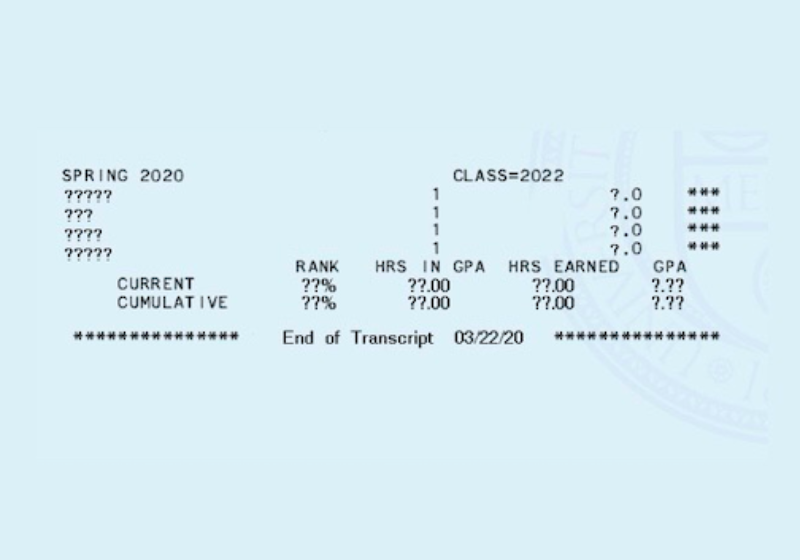On Friday, UR announced that it was switching to Satisfactory/Fail grading as the default for the semester, to accommodate students dealing with the COVID-19 pandemic. Satisfactory grades will count for degree requirements, and students can choose to get a letter grade by petitioning by April 3.
UR’s decision on grading was a huge step in the right direction. It helps take some stress off students coping with the outbreak on top of UR’s standard pressures. But it might be too soon to jump for joy.
Students who choose the S/F path might find themselves facing unexpected consequences. Harvard Medical School, for example, said it will only accept S/F credits for pre-med requirements if the applicant is from a school where that’s the only option. That effectively excludes UR students who choose S/F.
So far, it’s difficult to tell how many graduate schools will follow Harvard’s lead. But it’s not difficult to envision a future where the letter-grade students are getting accepted into schools, while S/F students (of equal merit) find themselves at a sore disadvantage.
With everything going on, it’s understandable if the next admissions cycle isn’t the first thing on anyone’s mind. But, those policies that have yet to come out are still important to students whose deadline to make a choice is fast approaching (by April 3). A lot of uncertainty could be alleviated if we knew whether or not future employers and admissions officials will view an entire course load of S/F grades with understanding or apathy.
No matter what happens, Spring 2020 grades at every university are going to be wack. But there is no one rule that would satisfy everyone. There is no way to develop a perfect system to account for everyone’s individual circumstances and home life disadvantages. But we can do better. Here’s our proposal.
Instead of just Satisfactory/Fail, satisfactory is replaced with an A, and the fail option remains. If a student passes, they get an A, and it’s factored into their GPA as such. This is not unlike a proposal in a recent SA Impact petition, which advocates for a double-A system, but our amendment is that if a student fails, then they fail.
Having an A replace the satisfactory option removes concerns about grad school application (and other post-graduate) consequences, because they don’t have to worry about their Satisfactory being interpreted negatively. Having the option of failing still provides some semblance of academic rigor, and stops students from entirely disregarding their coursework in the face of a guaranteed A.
But an A/Fail system still isn’t enough for some students who have disabilities, difficulty adjusting to massive transitions, an abusive home life, or shaky internet access.
So, in addition to the changed grading system, students should have the option to take additional time to complete coursework. The University of North Carolina created a new grade option, CV (for COVID-19), which gives students three extra months to complete their work, and eventually gets replaced by a passing grade for the semester (provided they complete all the course requirements). UR should adopt this.
The option to extend the deadline for completing coursework — with a transcript note that reminds schools of the enormous impact of COVID-19 on academic life — acknowledges there will still be some students who, through no fault of their own, will be unable to complete coursework this semester within the normal time frame, and will fail without a sympathetic administration’s support.
This system would inflate some grades. Students who don’t necessarily “deserve” the A will get the same grade as students who work their butt off.
But we’d rather have most (even the slackers) rewarded, than everyone (including the hard-workers) deprived of a reward.
There’s no grading method to ensure everyone’s hard work is perfectly assessed, while ensuring that the disadvantaged have fair accommodations. This is true even in a non-COVID-addled academic setting. With this in mind, we should provide as much flexibility as possible to students during these unprecedented and life-altering times.
The Editorial Board is a weekly Opinions article representing the view of the Campus Times, co-written by Editor-in-Chief Wil Aiken, Publisher An Nguyen, Managing Editor Efua Agyare-Kumi, and Opinions Editor Hailie Higgins.


